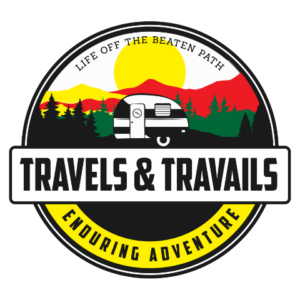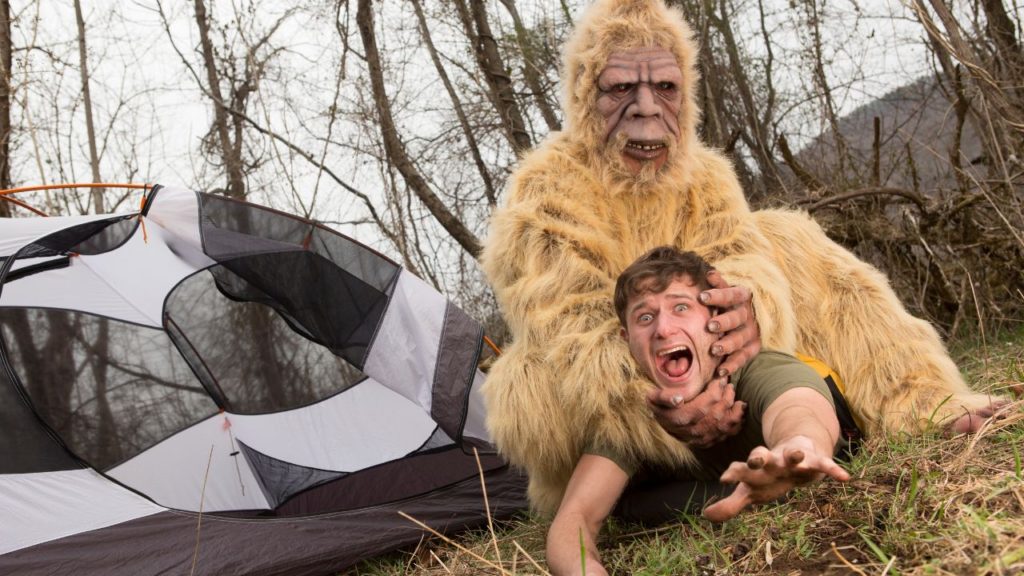
As much as you love camping with your friends and family, there’s a strong part of you that’s always had the itch to camp solo. It sounds great in theory, but then when you begin planning your expedition, something always holds you back. You’re scared. Is camping alone really as terrifying as it sounds?
Camping alone can be scary, especially if it’s your first time visiting a park or campsite. You have plenty of options to make a solo camping trip less scary, such as:
- Go somewhere you’ve camped before
- Bring more than enough supplies
- Stay in your tent after dark
- Carry protection
In this article, I’ll explore both sides of the coin, starting with the reasons why camping alone can be absolutely terrifying. Then I’ll share more tips like those above for a successful camping trip alone.
Let’s get started!
This Is Why It Can Be Scary to Camp Alone
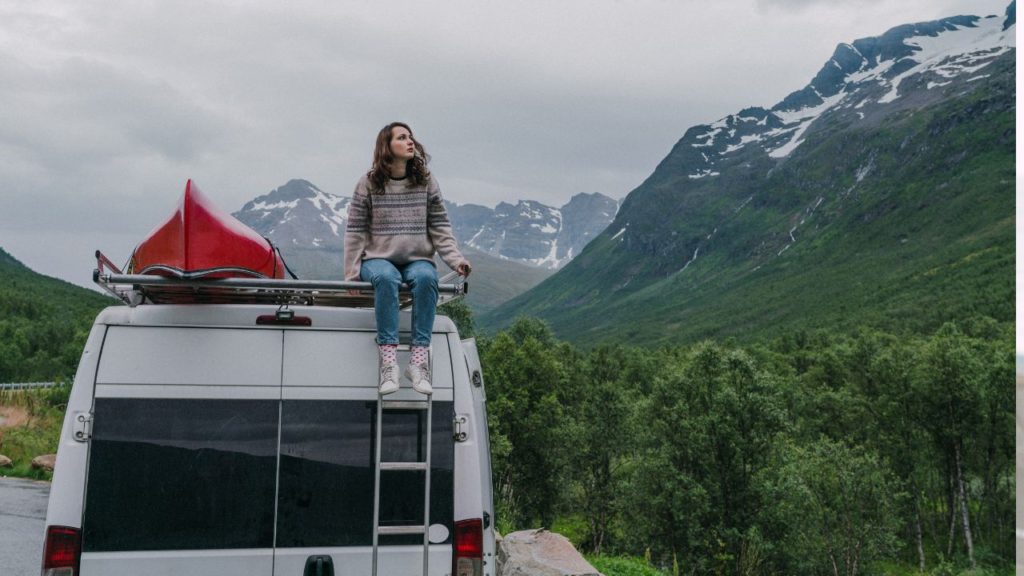
I’ve camped solo as a woman, and while it was an experience I would do again, I’ll admit that yes, I was pretty freaked out the first time. Actually, it was the first few times.
After all, when you’re driving to the campsite or lying in your tent alone, your mind can easily get the better of you. Here are the thoughts that might begin to fill your head.
You Could Get Lost or Hurt with No One to Help You
When camping with friends or family, you always stick to groups of at least two. This way, if someone were to fall down and hurt themselves, someone else would be there to pick them up and get them back to camp.
Once you’re by yourself, you wouldn’t have that person there to help you. You’d have to hope that a kind stranger would be willing to step in and assist. That might happen or it might not.
You also worry about getting lost. At least when you’re lost with a buddy, the two of you can work together to keep each other calm and navigate back to where you were.
When it’s just you, the panic of being lost is magnified times 100. You feel so much pressure to find your way because if you don’t, no one might ever find you.
Fortunately, there are some very simple solutions for both issues. I always recommend letting at least one other person in your life know where you’ll be camping and for how long.
If you don’t come back after two days as you said you would, they’d know to call the police, who can begin searching for you.
I’d also suggest bringing a compass and a paper map of the park or campsite. While you can’t use either tool if you’re lost in the dark, both can help you find your bearings when you’re panicked and can’t think straight.
You Could Disappear and No One Would Know What Happened
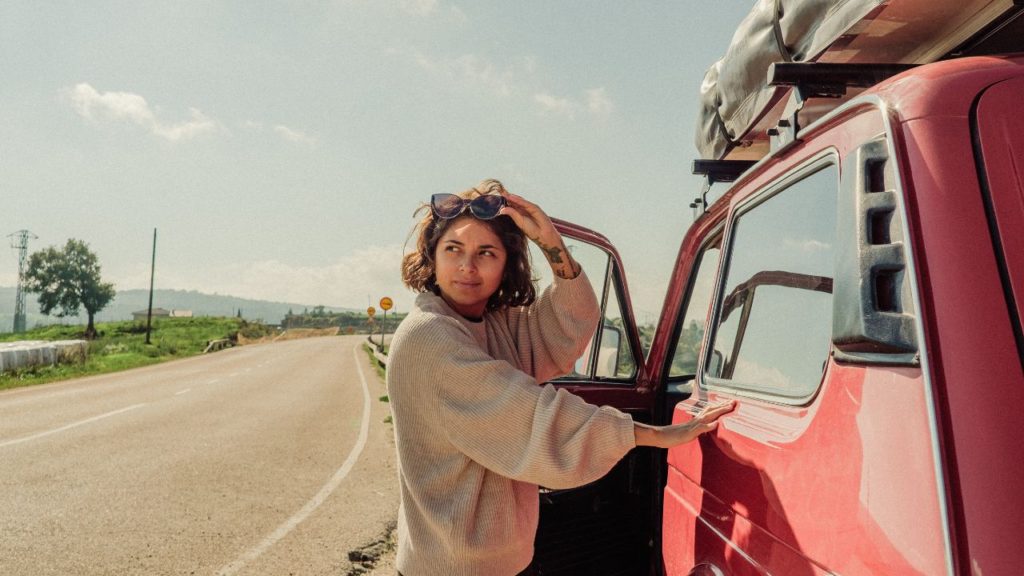
Another very real concern you have is that you’ll disappear while camping alone. Maybe a bear eats you, you fall down a ravine, you get murdered, or you simply vanish into thin air.
While you can never say never, these occurrences aren’t very likely. According to a 2021 article from Free Range American, a little over 300 people die every year in national parks.
That’s 312 out of the 240 million people who visited a national park in 2020, notes Statista.
These things do happen, but the chances of them happening are low. I’ll recommend plenty of safety tips in the next section that will make camping solo less risky.
I would again caution you to always tell someone where you’re camping so that if something did happen, the police would look into it.
Most importantly, you should always respect your intuition. If any situation gives you a bad feeling, get out of there immediately.
You Have to Do All the Work
Another scary element of camping alone that is admittedly less horrifying than the others so far is that you won’t have anyone to share the workload with.
Indeed, you’ll have to get good at everything related to camping, from safely reaching your destination to pitching the tent, unrolling your sleeping bag, starting a fire, cooking on the fire, safely putting out a fire, and deconstructing your tent when the time comes.
While thinking about all the tasks in front of you can be overwhelming, reframe your mindset. Don’t be daunted by what you have to do but look at it all as a learning opportunity.
If your friends always took care of pitching the tent, now is your chance to learn that invaluable skill. If you’ve never started a fire before, you’ll get to gain experience there as well.
Just make sure you’re pacing yourself. Don’t do so much that you push yourself to the point of exhaustion, as then your wits won’t be about you.
You Have to Be Alone with Your Thoughts
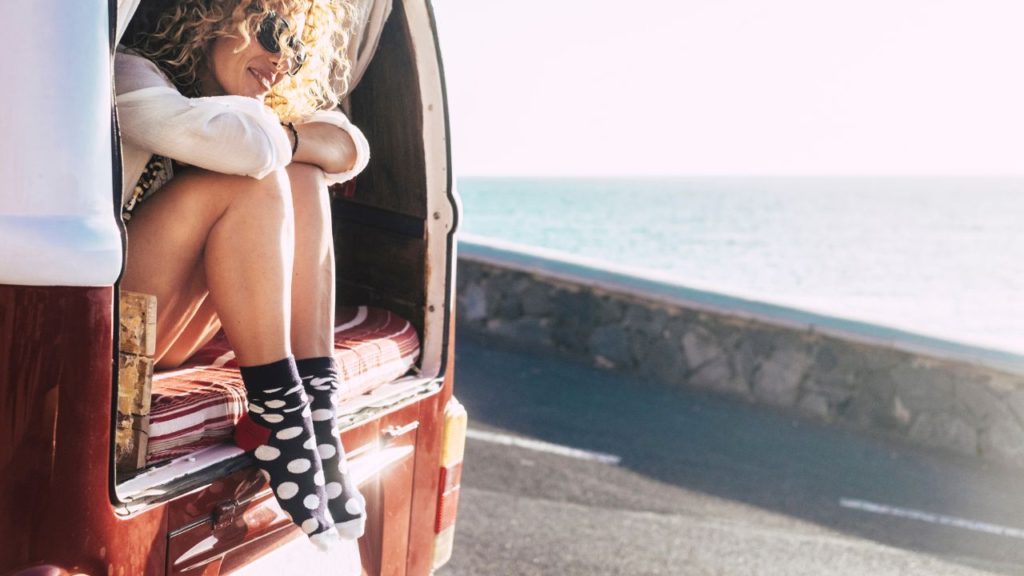
Perhaps one of the scariest aspects of camping alone is that you have no one to distract you with conversation and no TV to watch. It’s just you and the thoughts in your head.
I talked about how to get used to your own thoughts in my article about camping alone as a woman, which you should definitely read.
In that article, I recommended spending time alone with your thoughts long before you ever go camping.
Spend a little time at home each night with the music and TV and other distractions off just letting your mind do its thing.
The more you acclimate to this, the less terrifying it is by the time you’re out camping with only the sounds of crickets in the background.
And of course, if you really do struggle to be completely alone with your thoughts, you can always bring an MP3 player or use your phone to listen to podcasts.
In the case of the latter, make sure you have a portable charger!
How to Make Camping Solo Less Scary
Does camping alone have its risks whether you’re a man or a woman? Most definitely, and I’m not trying to downplay those risks at all.
However, if everyone let their fears hold them back from doing things in life, then think of where we as a society would be. We’d lack so many great innovations.
Preparedness makes the solo camping experience far more palatable. Here are some great pointers to keep in mind as you ready up for the adventure of a lifetime!
Go Somewhere You’ve Been
If you want to make your solo camping experience more stressful from the onset, camp somewhere new.
That feeling of walking into something blind is so much worse when you don’t have friends or family to rely on.
Instead, you’re better off camping somewhere you’ve been before, ideally several times.
Sure, maybe this is your first time venturing to that park or campsite alone, but you still know it well enough. You know what the drive is like, where to park, and where to pitch a tent.
You’re aware of any available amenities and their locations. You’ve hiked trails, explored paths, and know where they lead. You’ll feel more confident walking into the experience, which will translate to a more enjoyable trip for you.
Just don’t let your familiarity breed cockiness. Just because you know where a trail leads doesn’t mean you want to venture out after dark.
Always Have a Source of Illumination
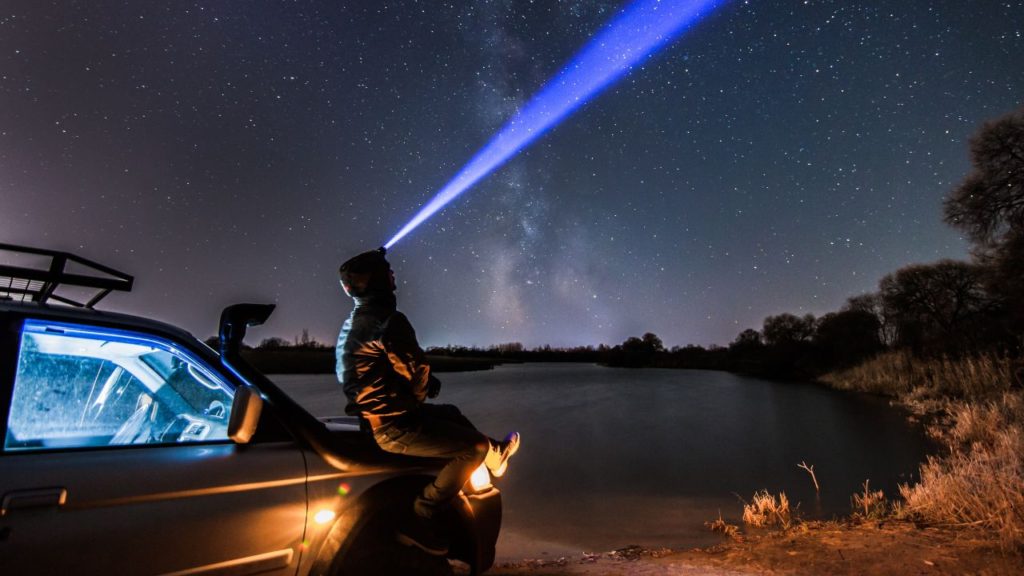
Speaking of nightfall, whether it’s a headlamp, a roaring fire, a flashlight, or even your phone screen in a worst-case scenario, you always, always need some form of illumination handy.
Even a park or campsite you know innately well becomes a completely foreign entity in the dark. When it’s so pitch black that you can’t tell your left hand from your right, everything feels so much scarier.
Illumination will allow you to surveil your nearby surroundings so you can see if a wild animal or a person is approaching. You’ll feel more comfortable and be a lot safer.
Don’t just turn on the headlamp or use a flashlight at night, but when it’s foggy, overcast, or whenever visibility is poor.
Be sure to pack plenty of extra batteries so your headlamp or flashlight doesn’t die on you when you need it most.
And please, try not to use your phone screen as illumination for long, as that’s a great way to kill the battery fast.
Stay in Your Tent at Night
Now, I do want to reiterate my point from before. You’re using illumination to determine how safe your area is. You shouldn’t be out venturing here and there on the campsite once the sun goes down.
Even with a flashlight or headlamp, visibility is poor in the dark. You can’t see miles ahead of you, which means that any threats lingering in the shadows will be unknown to you until it’s too late.
Those threats could be of the human variety but are just as likely (if not a little likelier) to be of the wild animal variety.
That’s why I recommend staying in your tent from dark until dawn. Bring everything you need into the tent before the sun sets, eat a filling dinner, hit the bathroom one more time, and try to stay in the tent.
“But what will I do?” I can hear you asking. Well, you can read by lamplight, listen to music on an MP3 player, watch a movie on a portable DVD player, or try to get some early sleep.
Bring Protection
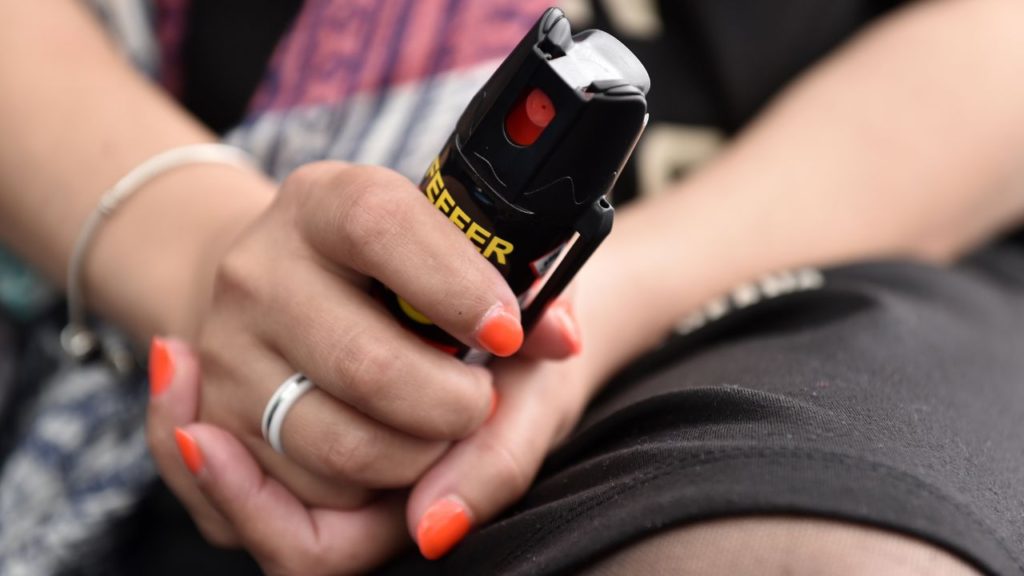
You can never be too safe out there is my motto when camping, especially alone. Having certain protective items on hand will make you feel safer, as you’ll have a means of fighting back against most threats.
At the very least, you want to bring bear mace.
Whether you spray the stuff into the face of a wild animal or a human, bear mace will cause inflammation of the mucous membranes.
The victim will experience nasal congestion, temporary blindness, and irritation in the lungs, nose, and eyes.
In some instances, they may have a hard time breathing.
Keep in mind that the effects of bear mace are short-term. After spraying the stuff at your attacker, you’d have just enough time to get to safety.
A pocket knife is also good to keep on hand. You can rely on your knife to cut rope, break down smaller pieces of wood, and even help you start a fire. It’s also a decent self-defense tool if it ever came to that.
Most parks and campgrounds allow pocket knives, so don’t forget yours. Always keep the pocket knife dry and retract the blade whenever you’re carrying it.
Have Enough Supplies
If one of your fears when camping alone is running out of food or water, there’s a very easy solution for this issue as well. Just pack more than what you need.
Each day of your trip, you’re supposed to have available seven and a half liters or two gallons of water and two and a half pounds of food. The food should amount to 2,500 to 4,500 calories.
I know, that’s way more calories than you probably eat in a day, but since you’re usually a lot more active when camping, you need the extra calories to provide energy.
If you bring at least that amount of food and water for each day of your trip, then you shouldn’t have to worry about going hungry or thirsty.
You can always pack a little extra, such as two and a half gallons of water or three pounds of food if that will give you peace of mind.
Just remember that the more you lug around, the heavier your load will be. You’ll tire yourself out faster dragging all that food and water.
You also probably won’t get to nearly as much of your stash as you assume, so a lot of it will end up coming home with you after the trip!
Conclusion
Camping alone can be scary, and I’ll never say that it isn’t. In my experience though, the more prepared you are, the easier it is to contend with the unexpected.
That’s what makes camping alone so scary, the burden of dealing with the unexpected on your own. Once you can do that no problem, you may just find that camping alone can be rather enjoyable.
After all, you get to choose the itinerary and activities. You pick the menu, the bedtime, and the wake time. It’s all up to you, and that’s quite invigorating!
I hope this article motivates you to try solo camping if you’ve always wanted to.
